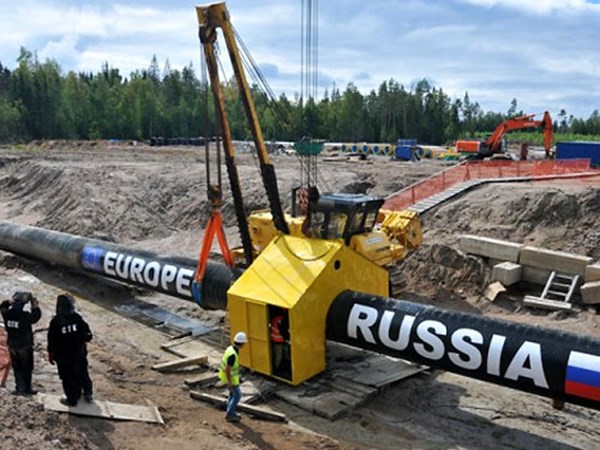Ukraine wants to challenge Denmark's permit for Nord Stream 2 construction
Ukrainian Energy Minister Oleksiy Orzhel said that the Ukrainian authorities might appeal against Denmark's permit for the construction of the Nord Stream 2 gas pipeline.
"We are now considering possibility of appeal from the environmental point of view," said Orzhel in an interview for Channel 24.
At the same time, the Ukrainian Minister recognized that considering Russia's expenses, Nord Stream 2 project will be implemented anyway.
"But I don't think that Nord Stream 2 will be fully operational on January 1, 2020," he added.
According to Orzhel, the Ukrainian gas transportation system "can become very competitive," and the European market will also benefit from this.
The Nord Stream 2 gas pipeline operator sought permission for the construction of the pipeline from Denmark since April 2017.
The Nord Stream 2 pipeline, which is being laid along the bottom of the Baltic Sea, is designed to transport gas directly from suppliers in Russia to consumers in Europe. The presumed capacity of the “stream” will be 55 billion cubic meters per year. The project will constitute an alternative transit option if the transit agreement between Russia and Ukraine, which expires on December 31 this year, is not extended. The pipeline bypasses the transit states – Ukraine, Belarus, Poland and other Eastern European and Baltic states – and passes through the economic zones and territorial waters of Russia, Finland, Sweden, Denmark and Germany.
On October 30, Denmark gave permission for a stretch of Nord Stream 2 to be built in its territorial waters – the pipeline will pass to the south-east of Bornholm island in the Baltic Sea. Denmark was the last country to give this permission.
Russian President Vladimir Putin said previously that Moscow is prepared to sign a gas contract with Kyiv if Ukraine implements European legislation by the end of the year.
Last week the National Bank of Ukraine warned that the country’s direct losses from the reduced transit of Russian gas will be 0.6% and 0.9% of the GDP in 2020 and 2021 respectively. “The reduction will lead not only to a direct loss of currency earnings but will create risks for the activity of related sectors of the economy, and the meeting of Ukraine’s own gas needs in general,” the National Bank observed.
Ukraine currently earns roughly $3 billion per year from gas transit.
Analysts from the Institute of Natural Monopolies Research (IPEM) believe that Russia will not be able to avoid gas transit through Ukraine if it hopes to meet Europe’s demand for the “blue fuel” by 2035. Fully avoiding transit through Ukraine will only be possible if there is a drastic decline in the amount of Russian gas piped to the European market.
In their calculations, the experts at IPEM factored in the capacities of the already operational pipelines – Nord Stream 1 along the bottom of the Baltic Sea, the Yamal-Europe pipeline through Belarus and Poland, Blue Stream along the bottom of the Black Sea to Turkey, a pipeline to Finland, the already built but not yet commissioned Turkish Stream (which is expected to begin transport by
the end of the year), as well as Nord Stream 2 (which is not expected to start operating before 2020).
